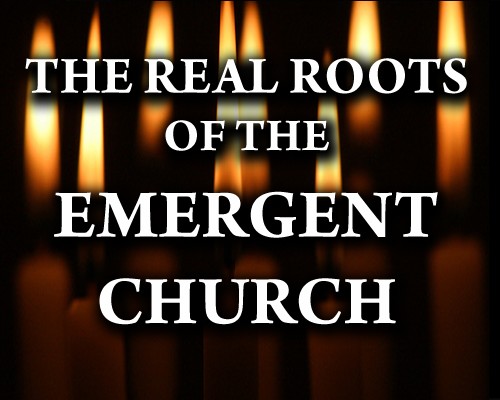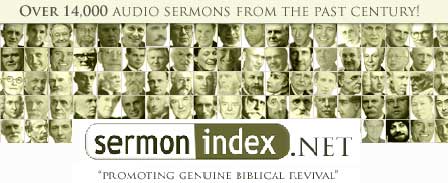Most Christians have at some point or another encountered the KJV-only camp. Though the KJV Bible is a masterpiece translation, it is not perfect. While I affirm that the Bible is the Word of God, inerrant, inspired, and the final authority, nowhere in the Bible are we told that only one translation of it is the correct one.
In the video below, Dr. Daniel Wallace, one of the world’s leading experts in New Testament Greek and New Testament manuscripts, explains the difference between the King James Bible and modern translations:
The King James Bible from :redux on Vimeo. Check out the :redux channel for other informative answers to common questions about textual criticism.
Furthermore, in the book Reinventing Jesus which I highly recommend for anybody wanting to research this further, the authors state on page 55:
The Greek text behind the KJV was based essentially on about half a dozen manuscripts, none of which were earlier than the tenth century. The Greek New Testament used today is based on thousands of manuscripts, some of which even date back to the second century.
In sum, today we have thousands more manuscripts and earlier manuscripts, thus a more reliable New Testament than was available for the KJV.
Here are some clips of Dr. Dan Wallace and Dr. James White debating some KJV-onlyist brothers such as Dr. Samuel Gipp and Dr. Thomas Strouse showing the error of people who say that the KJV is the only reliable translation.
Dr. Wallace makes some valid arguments in Why I Do Not Think the King James Bible Is the Best Translation Available Today. He noted,
[T]he Greek text which stands behind the King James Bible is demonstrably inferior in certain places. The man who edited the text was a Roman Catholic priest and humanist named Erasmus.1 He was under pressure to get it to the press as soon as possible since (a) no edition of the Greek New Testament had yet been published, and (b) he had heard that Cardinal Ximenes and his associates were just about to publish an edition of the Greek New Testament and he was in a race to beat them. Consequently, his edition has been called the most poorly edited volume in all of literature! It is filled with hundreds of typographical errors which even Erasmus would acknowledge. . . .
Third, the King James Bible has undergone three revisions since its inception in 1611, incorporating more than 100,000 changes. Which King James Bible is inspired, therefore?
Fourth, 300 words found in the KJV no longer bear the same meaning—e.g., “Suffer little children…to come unto me” (Matt 19:14). “Study to shew thyself approved unto God” (2 Tim 2:15). Should we really embrace a Bible as the best translation when it uses language that not only is not clearly understood any more, but in fact has been at times perverted and twisted?3
Fifth, the KJV includes one very definite error in translation, which even KJV advocates would admit. In Matthew 23:24 the KJV has ‘strain at a gnat and swallow a camel.’ But the Greek has ‘strain out a gnat and swallow a camel.’ In the least, this illustrates not only that no translation is infallible but also that scribal corruptions can and do take place-even in a volume which has been worked over by so many different hands (for the KJV was the product of a very large committee of over 50 scholars).4
Sixth, when the KJV was first published, it was heavily resisted for being too easy to understand! Some people revere it today because it is difficult to understand. I fear that part of their response is due to pride: they feel as though they are able to discern something that other, less spiritual folks cannot. Often 1 Corinthians 2:13-16 is quoted with reference to the KJV (to the effect that ‘you would understand it if you were spiritual’). Such a use of that text, however, is a gross distortion of the Scriptures. The words in the New Testament, the grammar, the style, etc.—in short, the language—comprised the common language of the first century. We do God a great disservice when we make the gospel more difficult to understand than he intended it. The reason unspiritual people do not understand the scriptures is because they have a volitional problem, not an intellectual problem (cf. 1 Cor. 2:14 where ‘receive,’ ‘welcome’ shows clearly that the thing which blocks understanding is the sinful will of man).
Seventh, those who advocate that the KJV has exclusive rights to being called the Holy Bible are always, curiously, English-speaking people (normally isolated Americans). Yet, Martin Luther’s fine translation of the Bible into German predated the KJV by almost 100 years. Are we so arrogant to say that God has spoken only in English? And where there are substantial discrepancies between Luther’s Bible and the KJV (such as in 1 John 5:7-8), are we going to say that God has inspired both? Is he the author of lies? Our faith does not rest in a singular tradition, nor is it provincial. Vibrant, biblical Christianity must never unite itself with provincialism. Otherwise, missionary endeavor, among other things, would die.
Eighth, again, let me repeat an earlier point: Most evangelicals—who embrace all the cardinal doctrines of the faith—prefer a different translation and textual basis than that found in the KJV. In fact, even the editors of the New Scofield Reference Bible (which is based on the KJV) prefer a different text/translation!
Finally, though it is true that the modern translations ‘omit’ certain words and verses (or conversely, the KJV adds to the Word of God, depending on how you look at it), the issue is not black-or-white. In fact, the most recent edition of a Greek New Testament which is based on the majority of MSS, rather than the most ancient ones (and thus stands firmly behind the King James tradition), when compared to the standard Greek New Testament used in most modern translations, excises over six hundred and fifty words or phrases! Thus, it is not proper to suggest that only modern translations omit; the Greek text behind the KJV omits, too! The question, then, is not whether modern translations have deleted portions of the Word of God, but rather whether either the KJV or modern translations have altered the Word of God. I contend that the KJV has far more drastically altered the scriptures than have modern translations. Nevertheless, I repeat: most textual critics for the past two hundred and fifty years would say that no doctrine is affected by these changes. One can get saved reading the KJV and one can get saved reading the NIV, NASB, etc.
SEE ALSO:
Are the New Testament Manuscripts Reliable?








 Conceived in Rape & Other Exceptions
Conceived in Rape & Other Exceptions  Zeitgeist Refuted Final Cut
Zeitgeist Refuted Final Cut  Real Roots of the Emergent Church
Real Roots of the Emergent Church  Church of Tares
Church of Tares